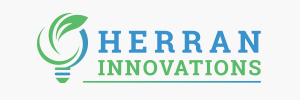In Bulgaria’s dynamic renewable energy scene, the years leading up to 2023, and likely extending beyond, have showcased a clear trend: photovoltaics have emerged as the top preference for potential investors in green energy on the local market. Investors are drawn by favourable natural conditions for solar energy in Bulgaria, coupled with proactive regulatory measures—setting photovoltaics apart from other forms of renewable electricity generation.
This strategic shift towards prioritizing photovoltaics is evident in the prevalence of large solar projects, overshadowing alternatives like wind, hydro, and biofuel. Bulgaria’s 30-year energy strategy adopted in 2023 envisages building 4 GW of nuclear capacity, 12 GW of solar and 4 GW of wind facilities. In the medium, run it projects adding 7 GW of solar and 2 GW of wind power plants by 2030.
The country also plans to develop a total of 870 MW of new hydropower projects by 2030 and 1.27 GW by 2050. In geothermal energy, the focus is on improving local district heating systems. In the hydrogen segment, the strategy envisages the construction of 1 GW of electrolyzers by 2030 and 5 GW of electrolyzers by 2050 for domestic consumption and export.
The largest solar project in the pipeline in Bulgaria as of the beginning of 2024 is being developed by Central and Southeast Europe-focused renewable energy producer Rezolv Energy, based in the Czech Republic. The solar park St. George, located on the decommissioned Silistra Airport in north-eastern Bulgaria, with a total installed capacity of 229 MW is set to turn into the largest operational solar park in the country upon completion, planned for the second quarter of 2025. The park is planned to operate with an average annual output of 313 GWh.
In January 2024, the investor obtained regulatory clearance for the project and will start construction activities in the first half of the year. Rezolv Energy intends to sell power to commercial and industrial users via long-term PPAs.
Another major solar project in development is the floating photovoltaic park on Ogosta Dam in north-western Bulgaria announced by Germany-based Profine Energy in 2022. The park will be worth a total of EUR 1 bln and has a planned installed capacity of 500 MW. As of January 2024, the investor is in talks with Bulgaria’s government to change legislation that will allow the construction of the park to commence.
The construction of the Chirpan solar power plant in south-eastern Bulgaria was scheduled to start in late 2023, according to its developer Enery. The 160 MW project would be among the three largest in the country upon completion.
Plans for another project of the same investor, worth more than EUR 100 mln and having peak installed capacity, were announced in June 2023. The facility in northern Bulgaria should become operational in 2024. Enery has long been an active player in Bulgaria’s solar power market, already operating three of the largest photovoltaic plants in the country.
Furthermore, back in 2020, the company stated its intentions to be among the leaders in this segment in Bulgaria by securing preliminary approval from the municipality of Haskovo in southern Bulgaria for its 400 MW solar park project, but since then no further advancement of the project has been known. In June 2023, Bulgaria’s biggest solar power plant at that time – the 123 MW Verila project, was commissioned.
The facility, which cost EUR 102 mln and was financed by local energy company Eurohold, supplies electricity to the telecom Yettel and its infrastructure affiliate Cetin Bulgaria under a 10-year PPA. The output is expected to cover between 80% and 86% of the two companies’ electricity consumption.












